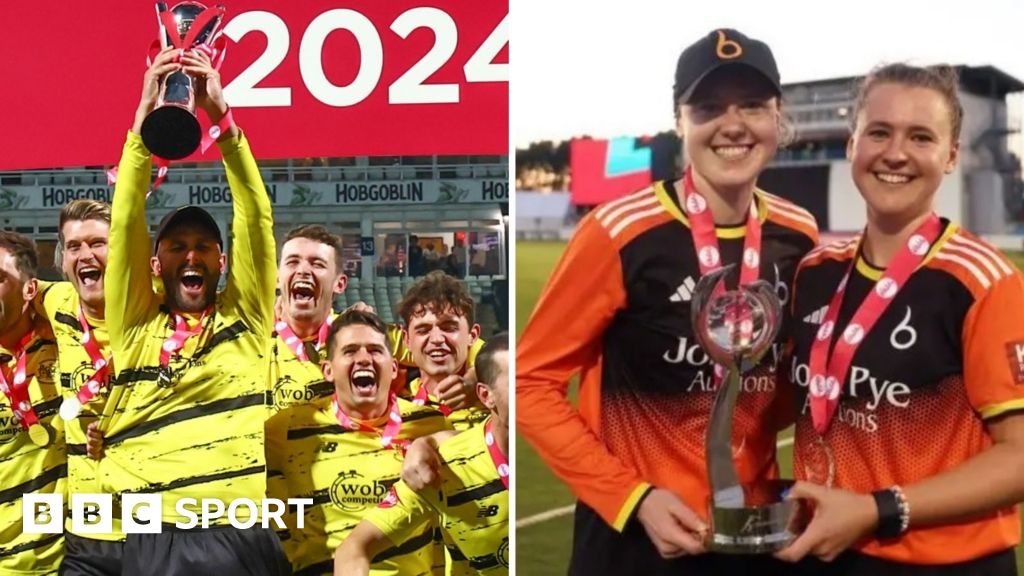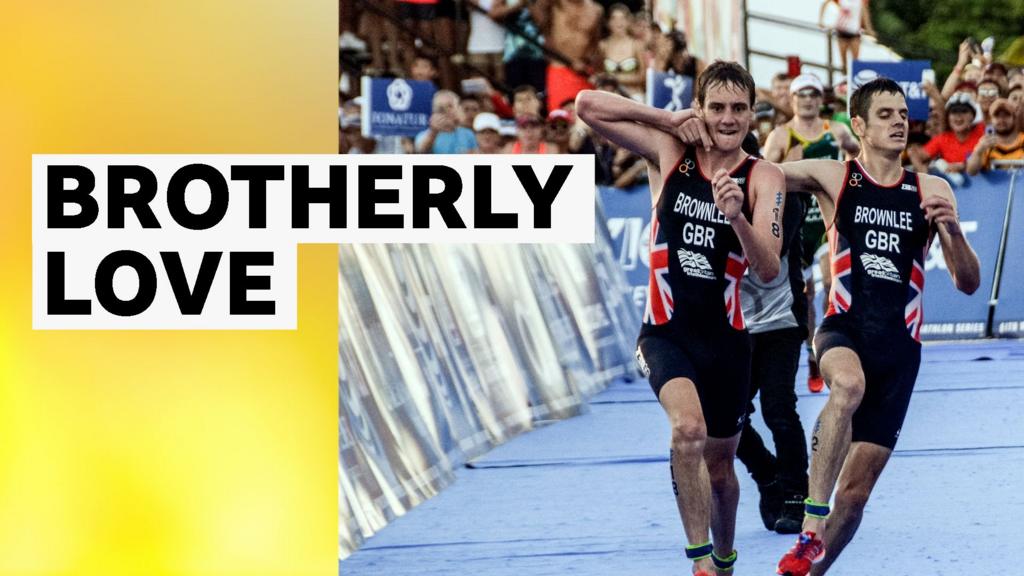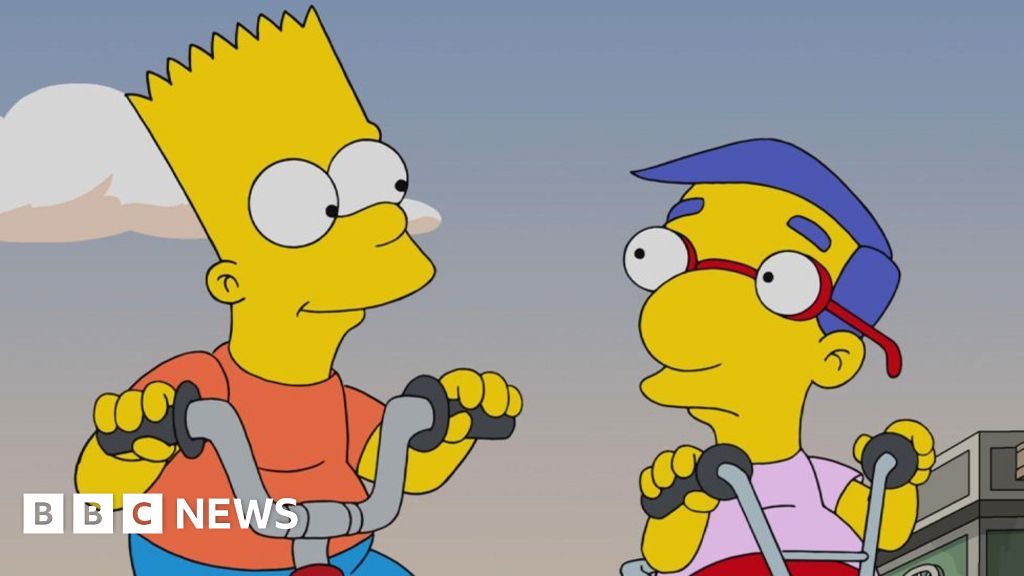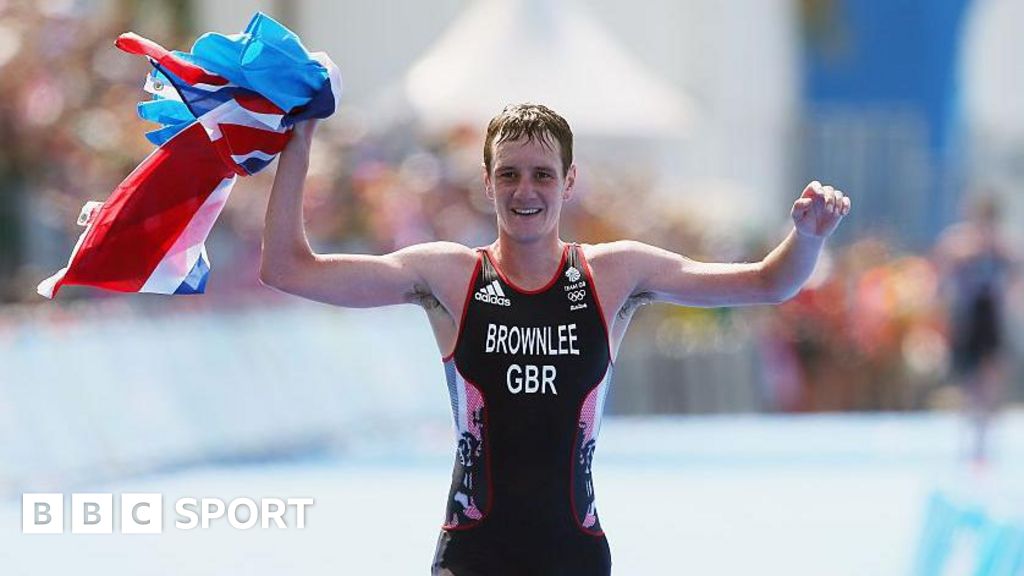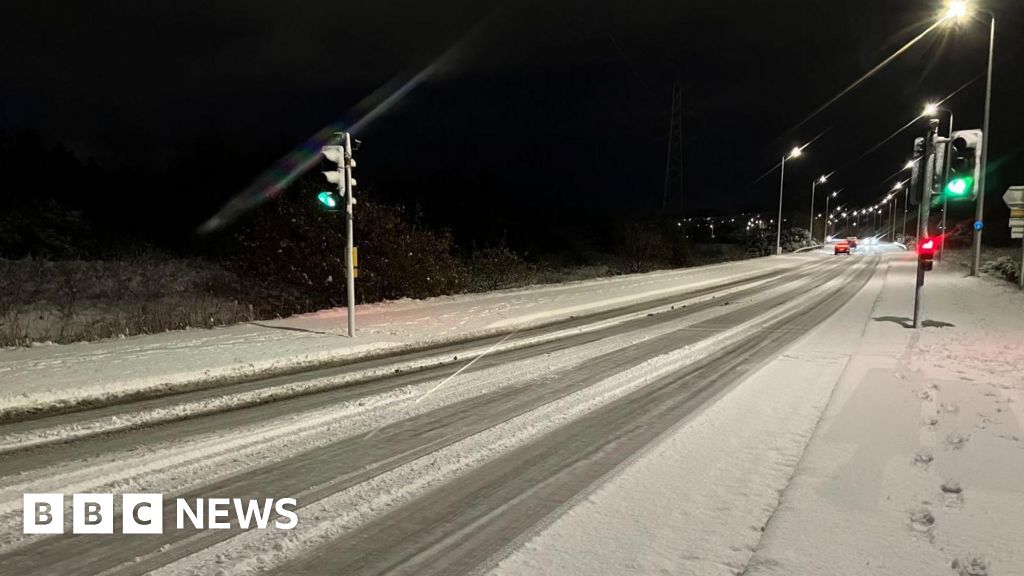
 Getty Images
Getty Images
The independent Pay Review Body recommended a 5.5% increase for health staff in Northern Ireland
There will be "large-scale industrial action across the health service" in Northern Ireland if staff do not have pay parity with the rest of the UK, a union representative has said.
The news comes after Health Minister Mike Nesbitt raised the prospect that he would not be able to match pay deals being given to healthcare staff in other parts of the UK.
The independent Pay Review Body recommended a 5.5% increase for health staff in Northern Ireland for 2024-25.
The recommendation has been implemented for NHS workers in other parts of the UK but, so far, not in Northern Ireland

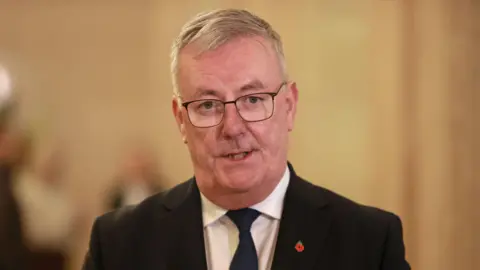 Pa
Pa
Mike Nesbitt will meet health unions to discuss options
On Monday, £700m of new and unspent funds was distributed among Stormont departments, as part of last month's Westminster budget.
Mr Nesbitt's department got an additional £350m but he said that would leave him £100m short of a balanced budget.
'Serious neglect'
Anne Speed Head of Unison said issues around pay parity are "going to lead to large scale industrial action across the health service".
"It isn't a threat, it's an inevitable outcome," she told the Nolan Show.
"How can we honestly say to workers in Northern Ireland you’re worth less than workers in England, Wales, and Scotland. It’s not a tenable decision," she added.
Ms Speed said that health workers are "feeling thoroughly undervalued" and "disrespected".
If the 5.5% increase is not implemented, Ms Speed said there would be a "very difficult environment" with health care workers "on the picket lines post Christmas".
Her colleague Patricia McKeown said there had been a “serious neglect of the health service” for “more than 20 years”.

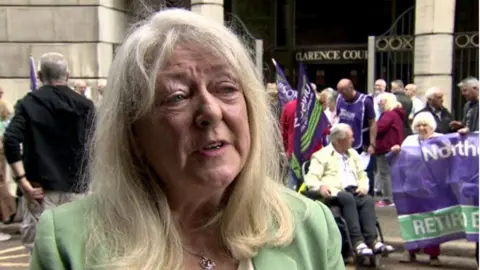
Patricia McKeown said there had been serious neglect of the health service for a long time
‘Disbelief and disappointment’
Rita Devlin, the Northern Ireland Director of the Royal College of Nursing, said she is in “absolute disbelief and disappointment” over the news.
“We have been promised time and time again since 2019 that Northern Ireland will not go out of pay parity with the rest of the UK,” she told BBC’s Good Morning Ulster.
“If we have to take strike action, this will be the third time that our nurses have had to go out on the streets to get the same pay.”

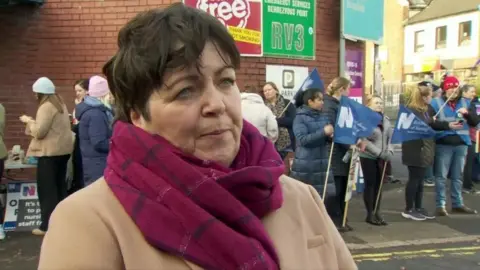
Rita Devlin said she was in disbelief about the news
Ms Devlin believes that her members are “holding up a broken health service” dealing with “overcrowded” wards and emergency departments.
She said she cannot see any other option other than industrial action if pay parity is not met but said it will ultimately be the choice of members.
'No other option'
Brenda Stevenson of Unite the Union said her members are “not prepared to take anything less than pay parity”.
She said she was “hopeful” after previous negotiations that health care workers in Northern Ireland would “never ever find themselves in this situation again”.
“If we don’t get the pay review bodies recommendation of the 5.5% we’ll have no other option but to ballot our members for industrial action,” she said.
“You won’t have a workforce if you don’t invest in them,” she added.
Deputy First Minister Emma Little Pengelly said there was a "collective acknowledgment" that this was "not a round of allocations that allows ministers to prioritise pay in the way that they would want to do".
Earlier this year, finance minister Caoimhe Archibald, told MLAs that departments were facing spending total pressures of £767m.
A spending pressure is when a department believes it needs more money than is currently available in its budget.
‘Serious neglect’
Last week, members of Unison held a rally at Stormont, warning of potential industrial action over pay.
Nesbitt is due to meet health trade unions to discuss options and the best way of moving forward.
In a statement on Tuesday, Nesbitt said: "Budgetary decisions by the Executive, including the allocations announced today, mean there is insufficient funding to maintain pay parity for health service workers.
"That is an extremely regrettable position with potentially serious consequences.
"I could not in all conscience support it today. I could not look health service workers in the eye and say I had put my name to pay funding that will be lower than England and Wales."
The Ulster Unionist leader added: “Let's be clear. The Executive has knowingly, with its eyes wide open, decided to break pay parity for health service workers."

 1 week ago
5
1 week ago
5
